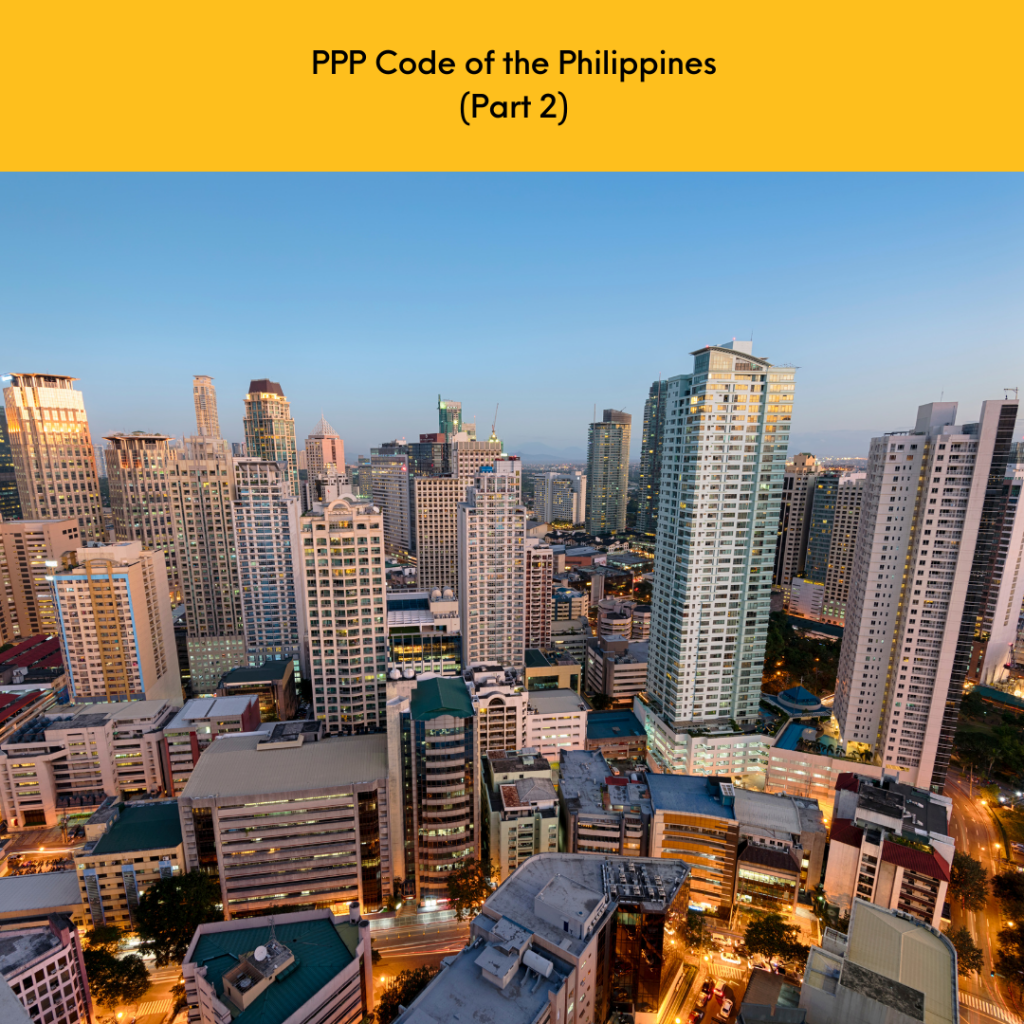
Published 15 April 2024, The Daily Tribune
To address investor concerns about the inconsistent policies of different administrations on unsolicited proposals, the PPP Code established a structured process for its evaluation.
All unsolicited proposals must be initially filed with the PPP Center to determine completeness and approve the body and endorsement to the appropriate implementing agency. The original proponent status shall be valid for a period not exceeding one year from conferment after a successful negotiation between the implementing agency and the private proponent on the parameters, terms and conditions.
If the unsolicited proposal is approved, it will be subject to a comparative challenge for a period of 90 calendar days to one year. The original proponent shall have 30 calendar days to match a challenger’s proposal. Any change in the composition of the original proponent that will affect its majority ownership is prohibited.
Unsolicited proposals involving right-of-way acquisitions may be considered, provided that the implementing agency may not make an advance payment for such ROW acquisition and related costs.
To facilitate the processing of unsolicited proposals, the PPP Code imposes timelines for the PPP Center and the implementing agency to act on the unsolicited proposal. If the implementing agency fails to act on an unsolicited proposal within 90 days after the end of the detailed evaluation period, the project proposal shall be deemed approved.
The PPP Code likewise unified the procedure for solicited proposals. It allowed the public bidding to be conducted electronically, and mandated that the PPP contract be awarded to the bidder who has submitted the Most Responsive Bid to the bid parameter proposed by the implementing agency.
The Most Responsive Bid refers to the bid that conforms, in all material respects, to the bid solicitation requirements and approved bid parameters and the one that is most advantageous to the government. If the winning bidder fails to comply with any post-award requirement or fails to enter into a PPP contract, the PPP contract will be awarded to the next most responsive bidder. Further, the PPP Code allows substitution in the composition of the pre-qualified private proponent prior to bid submission, provided that the substitute has equal or better qualifications.
In joint venture (JV) PPPs, the government’s contribution may not exceed 50 percent of the project cost for contractual JVs or outstanding capital stock for incorporated JVs.
The private partner may recover its investments through any of the following schemes or a combination thereof: (a) revenue-based, where the private partner may charge and collect reasonable tolls, fares, fees, rentals, and other charges subject to appropriate regulation, or (b) availability-based where the implementing agency shall make predetermined payments in exchange for delivery of an asset or service in accordance with the PPP contract. Other investment schemes, such as commercial development rights or grants of a portion of reclaimed land, may also supplement the foregoing schemes.
The PPP Code also limited judicial actions on PPP processes. All courts, except the Supreme Court, are prohibited from issuing temporary restraining order (TRO), preliminary injunction, preliminary mandatory injunction, temporary environmental protection order, or similar temporary or provisional reliefs or remedies against any implementing agency or the PPP Center to restrain, prohibit or compel the (a) evaluation, acceptance and rejection of unsolicited proposals; (b) bidding, rebidding, or declaration of bidding of any PPP project; (c) awarding of any PPP contract; (d) acquisition, clearance, and development of the right-of-way site, or location of a PPP project; (e) construction, operation, and maintenance of any PPP project; (f) commencement, execution, implementation, termination, or rescission of a PPP contract; and (g) undertaking or authorization of any other lawful activity necessary for such PPP project.
This prohibition shall not apply when the matter is of extreme urgency involving a constitutional issue, such that grave injustice and irreparable injury will arise unless a TRO is issued.
These changes in the PPP Code seek to clear ambiguities in the current legal framework and to address bottlenecks in the implementation of PPP projects.
For more of Dean Nilo Divina’s legal tidbits, please visit www.divinalaw.com. For comments and questions, please send an email to cad@divinalaw.com.

